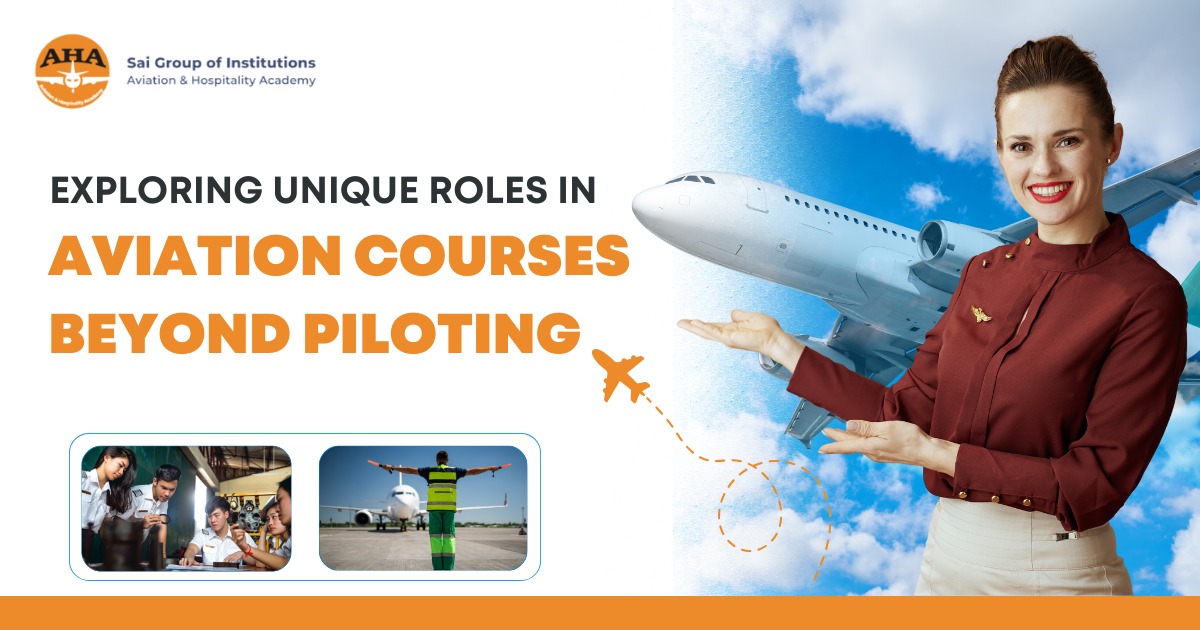Whenever the word aviation is mentioned, the image of a person who can be described as a pilot is always conjured up. Nevertheless, the aviation industry is wide and has many career options that are not centered on flying an airplane. The roles in the aviation sector are so wide that aviation courses have been developed to address these roles and ensure the industry functions effectively, ensuring the continuity of activity from the ground to the sky.
For instance, if you wish to enter the aviation profession but do not want a career as a pilot, then you should be looking into all the other roles in aviation beyond piloting and flying.
Air Traffic Controller (ATC)
An Air Traffic Controller (ATC) is the person who makes sure that safety standards for the operation of aircraft are adhered to. This is done primarily through the management of aircraft in motion on airspace and on the ground, to avoid collisions. It is a highly skilled occupation that requires great concentration and the capacity to make decisions quickly. Usually, aviation courses comprise of air traffic control training modules so that the students have the technical skills and situational awareness of the practice.
Aircraft Maintenance Engineer (AME)
There is a team of engineers behind every safe flight, and they make sure the aircraft is in tip-top condition. Aircraft Maintenance Engineers check, fix, and maintain aircraft with an assurance of complete safety. A diploma in Aviation in aircraft maintenance provides aerodynamics, propulsion systems, and avionics knowledge for candidates interested in this critical role.
Cabin Crew and Ground Staff
The other charm of the aviation industry is its customer-facing workforce: cabin crew and ground staff. Cabin crew responsibilities include passenger safety and comfort during the route. The ground staff are also essential in performing basic operations within the airport, such as check-ins, baggage handling, and customer service. Both cabin crew and ground staff need good communication skills and knowledge about the needs of passengers. Most aviation courses for a non-flying careers focus on that.
Aviation Management
If you're a born leader and have excellent organizational skills, then this discipline presents exciting career opportunities. There are also roles associated with airport management, air transport logistics, and airline administration, among others. A focused diploma in aviation management teaches critical topics including airport development, financial control, and legal directives, in readiness for managerial duties.
Flight Dispatcher
A flight dispatcher is responsible for systematic organizing of work of all the flights. He works along with the pilots to prepare an operational flight plan using parameters such as the climate, fuel and upper air traffic. This position requires accuracy and swift judgment. Specialized aviation courses designed for dispatch training contain lessons in weather anticipation, route finding, and airspace management rules.
Aviation Safety and Security Specialists
Here, professionals implement safety measures and risk assessment to ensure conformation to the international standards on safety standards. Most of the jobs related to this field require a sound knowledge of the laws, as well as most safety requirements in aviation are covered by advanced courses in aviation studies.
Logistics and Cargo Handling
There is more to aviation than flying passengers; cargo is equally important. Logistics and cargo handling professionals make sure the goods are transported efficiently within the globe. These responsibilities include both the management of timetables and the dispatch of goods with respect to the relevant laws and regulations of carriers.
Conclusion
Pursuing aviation courses that focus on skills other than flying widens the scope of one’s career aspirations. They provide a knowledge base, practical experience and exposure to one of the most exciting industries. It does not matter if your inclination is technical, managerial or front office, all are available under aviation.
In the aviation industry, it takes people with different skills and expertise working together to make things work. College cabin crew members, engineers, managers, and others are equally important to the smooth running of their operations.<
If you are eager to take advantage of one of these various opportunities, So, it is time to step into the land of aviation apart from the pilots at Sai Aviation
